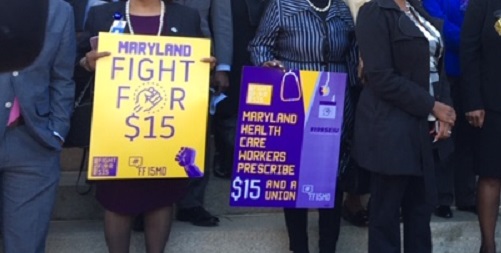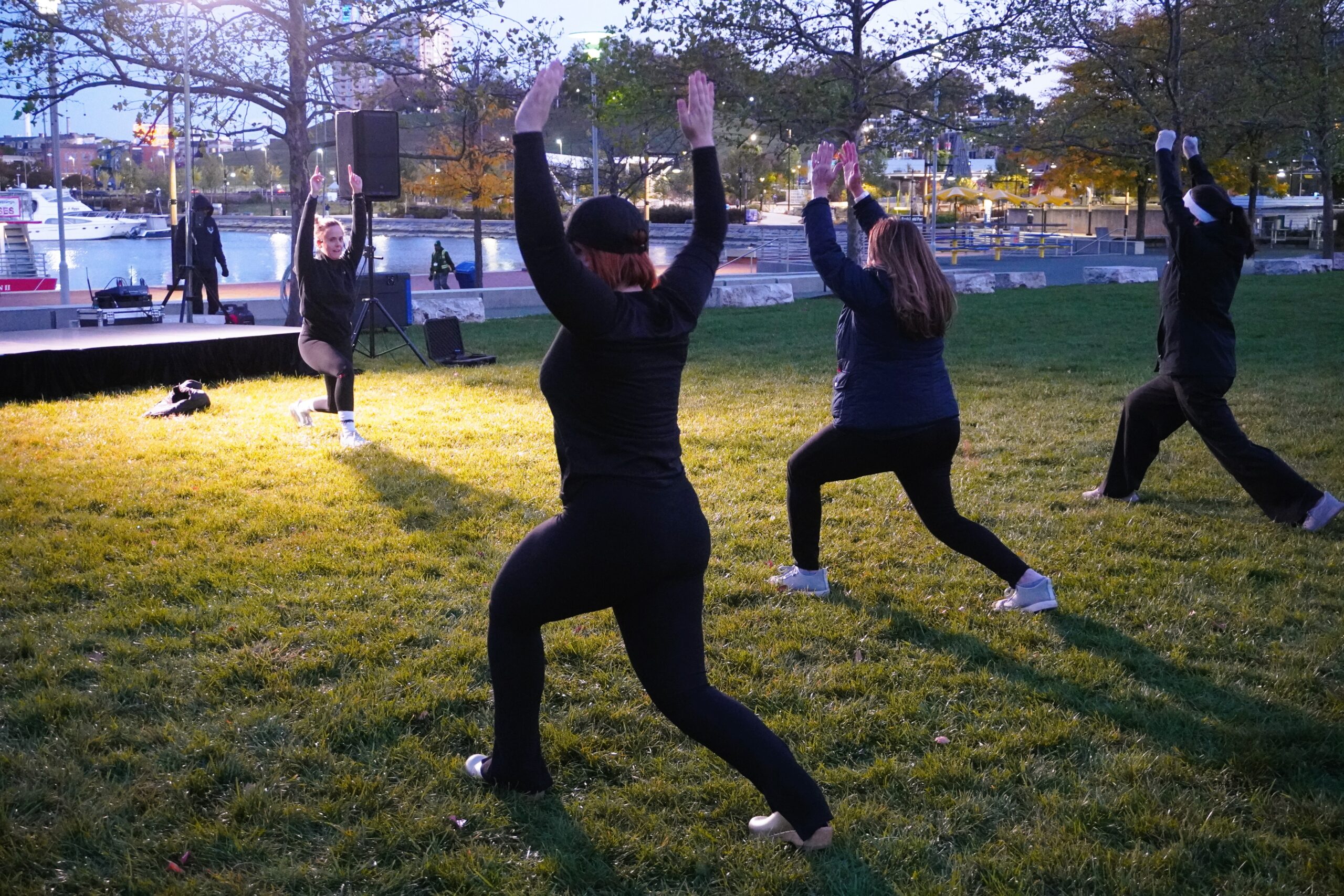Opinion: Critical Piece in the Fight for $15 That’s Been Overlooked

Maryland is the first state to pass a $15 minimum wage law that will increase the rates the state pays medical providers. To help providers that care for the developmentally disabled, nursing homes, adult day care centers and mental health facilities pay the higher minimum wage, the Maryland minimum legislation — which the General Assembly recently passed by overriding Gov. Larry Hogan’s veto — requires future annual increases of 4 percent in state funding of reimbursements.
I work as a housekeeper. Every day on the job, while I work hard to keep our facility clean, I see my fellow union members in the direct service workforce bath, feed and care for Maryland’s most vulnerable. Many of us work at or just above the minimum wage and we deserve an increase — and the state reimbursement rates needed to increase to make that happen.
The low wages these providers pay workers like me — who work tirelessly to clean and sterilize residents’ rooms, treat patients’ wounds, change feeding tubes, assist with using the bathroom and give medication — motivated myself and my fellow members of 1199 SEIU, Maryland’s largest health care union, to lead the Fight for $15 in Annapolis.

Tara Johnson
A recent research brief on Maryland’s direct services workforce (such as certified nursing assistants and home health aides) from PHI, the nation’s leading authority on the direct care workforce, found Maryland’s median hourly wage for all direct services workers in 2017 was $13.03. That’s not enough. The cost of living in Maryland in 2017 was $14.62 per hour for a single adult and $33.27 per hour or an adult with two children.
Prior to the passage of this bill, health care employers said that they simply aren’t reimbursed enough from the state Medicaid program to be able to afford wage increases. This situation has a double negative impact. While some health care operators, such as nursing homes, struggle financially, my co-workers and I struggle to pay our bills after working full time at these facilities and at second jobs.
Workers deserve to have just one full-time job and earn a paycheck large enough to be able to buy food, pay rent and provide for their families. 1199 SEIU is happy to see that Maryland recognized the role reimbursement rate increases play in creating a system that works for everyone.
Finally, we understand the Maryland General Assembly decided to delay the ramp up of wages to $15 until 2025 to ensure time to increase the state Medicaid budget to fund the rate increases in the bill and ultimately provide these health care facilities the resources they need to raise wages. I am thrilled Maryland is a leader, passing this important legislation to help hundreds of thousands of my fellow workers who work hard to care for our loved ones.
–TARA JOHNSON
The writer is a housekeeper at Westgate Hills Rehab and Healthcare Center and a member of 1199 SEIU.
Did someone forward this to you?
Get your own daily morning news roundup in your inbox. Free. Sign up here.




 Creative Commons Attribution
Creative Commons Attribution